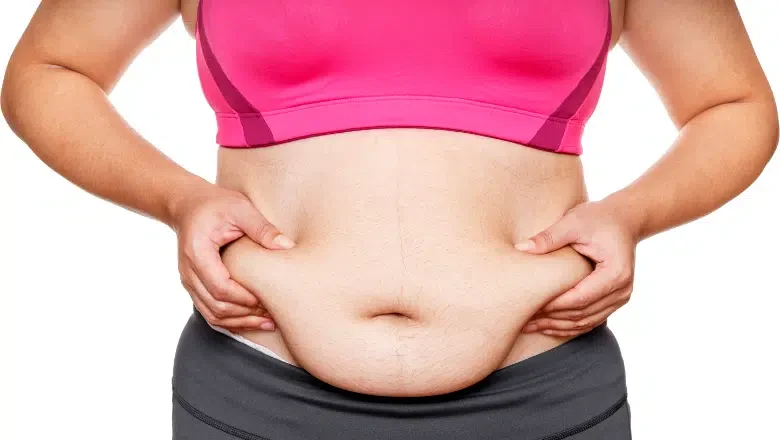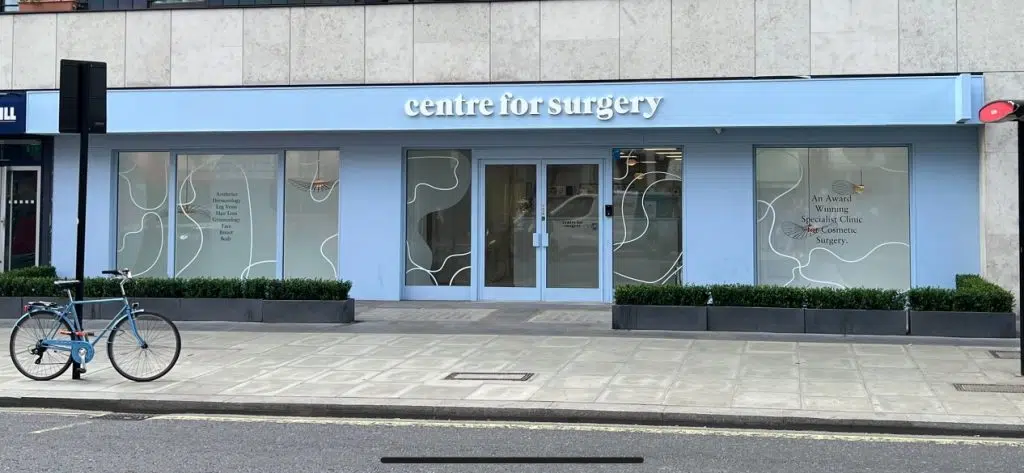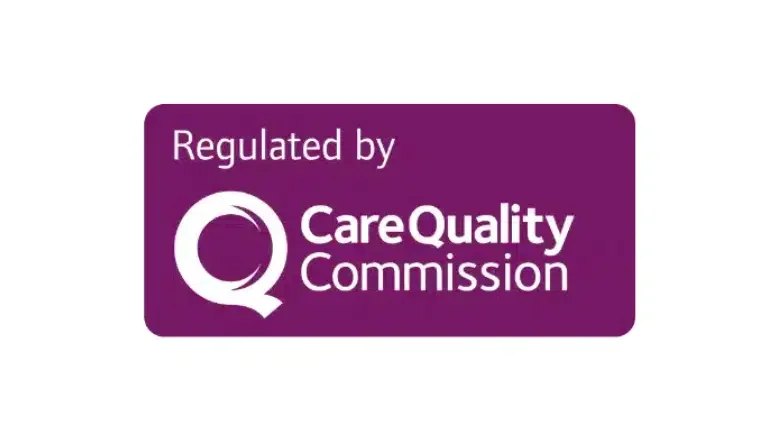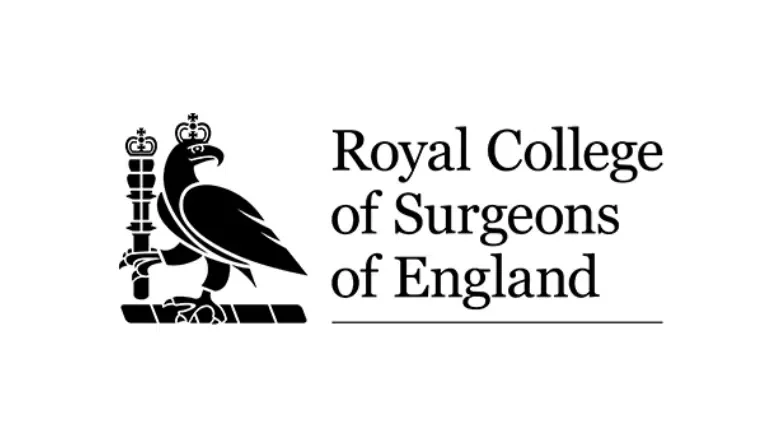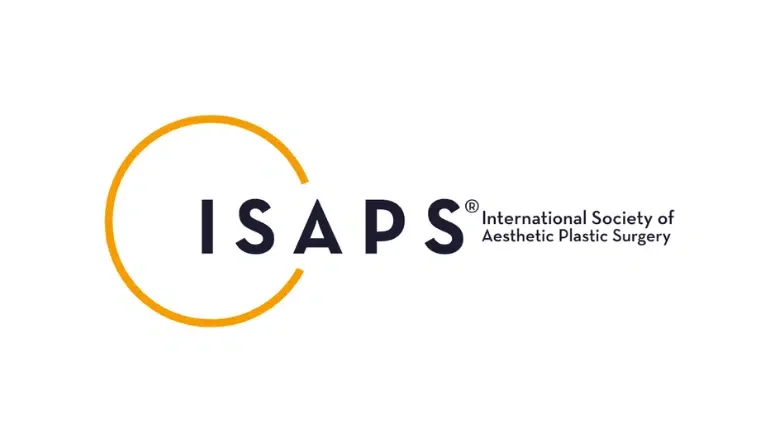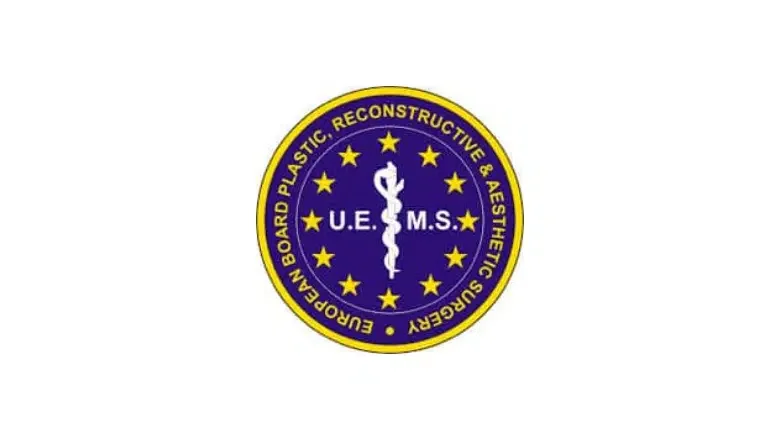A tummy tuck or abdominoplasty is the ideal procedure for women who may have developed loose, sagging skin affecting their abdomen after pregnancy or significant weight loss. This can cause women to avoid many social situations, such as swimming, with a resulting loss of self-confidence. Centre for Surgery is home to some of the leading plastic surgeons in the UK, and our surgeons have years of experience performing abdominoplasty surgery. Here, we answer your most commonly asked questions about tummy tuck surgery.
RELATED: Key facts about tummy tuck surgery & abdominoplasty
TUMMY TUCK BENEFITS
Can a tummy tuck give me a flatter stomach?
A tummy tuck can be an effective way to achieve a flatter stomach, especially for people who have lost a significant amount of weight, have had multiple pregnancies, or have lost skin elasticity due to ageing.
A tummy tuck can remove excess skin and fat from the lower abdomen, as well as repair separated abdominal muscles. This procedure can make a big difference in the appearance of the abdominal area, especially for people who have stretched skin and muscle due to pregnancy or weight loss.
Can a tummy tuck get rid of my apron belly?
A tummy tuck (abdominoplasty) can be an effective way to remove excess skin and fat from the abdominal area, as well as to tighten the muscles of the abdominal wall. This can help to improve the appearance of an “apron belly,” which is a condition in which the abdominal area hangs down over the pelvic area.
However, it’s important to keep in mind that a tummy tuck is a surgical procedure and carries certain risks. Additionally, the procedure is not intended as a weight loss solution, and it’s not recommended for individuals with a significant amount of excess weight.
What is a Brazilian tummy tuck?
A Brazilian tummy tuck, also known as a “butt lift,” is a body contouring procedure that combines a traditional tummy tuck (abdominoplasty) with liposuction and fat transfer to the buttocks. The goal of this procedure is to remove excess skin and fat from the abdominal area while at the same time enhancing the shape and size of the buttocks.
During the procedure, the surgeon will make a horizontal incision across the lower abdomen and then remove excess skin and fat. The surgeon will then use liposuction to remove fat from other areas of the body, such as the hips, and transfer it to the buttocks. The goal is to create a more youthful and shapely appearance, with a flatter tummy and rounder and lifted buttocks.
SUITABILITY FOR TUMMY TUCK SURGERY
Am I suitable for a tummy tuck?
A tummy tuck, also known as an abdominoplasty, is a surgical procedure that removes excess skin and fat from the abdomen and tightens the muscles of the abdominal wall. The procedure is typically recommended for people who have loose or sagging skin in the abdominal area due to weight loss, pregnancy, or ageing. It is not intended as a weight loss solution.
To determine whether you are a good candidate for a tummy tuck, you should schedule a consultation with a plastic surgeon. They will evaluate your health, overall body shape, skin tone, and other factors to determine whether the procedure is appropriate for you and what the best course of action would be. They will also discuss the potential risks and benefits of the procedure with you and help you make an informed decision.
What is the best age for a tummy tuck?
The best age for a tummy tuck (abdominoplasty) varies depending on an individual’s specific circumstances. Generally, it is recommended to wait until a person is done having children, as pregnancy can undo the results of the procedure. Additionally, it is best to be at a stable weight and in good overall health before undergoing a tummy tuck. It is essential to consult with a specialist plastic surgeon to determine if a tummy tuck is the right option for you and to discuss the best timing for the procedure.
What is the ideal weight for a tummy tuck?
There is no specific “ideal” weight for a tummy tuck. The procedure is designed to remove excess skin and fat from the abdominal area and to tighten the underlying muscles, not to achieve weight loss. It is generally recommended to be at a stable weight and in good overall health before undergoing a tummy tuck. It’s important to consult with a plastic surgeon to determine if you are a good candidate for the procedure and to discuss the best timing for it.
It’s worth noting that in order to have the best possible outcome from a tummy tuck, you should be close to your ideal weight. Being significantly overweight or obese can put you at a higher risk for complications during and after surgery and can also negatively impact the results of the procedure.
RELATED: Ideal Weight For Tummy Tuck
Should I lose weight before having an abdominoplasty?
It is generally recommended that patients be at a stable weight before undergoing a tummy tuck. This is because significant weight loss after the surgery can negatively affect the results. It’s important to have realistic expectations of the surgery. A tummy tuck is not a weight loss surgery. It’s a body contouring surgery.
If you are significantly overweight, your surgeon may recommend that you lose weight before the surgery to reduce the risk of complications and improve the overall outcome of the procedure. This will make the surgery safer for you and may help you achieve a better cosmetic result.
HOW TO PREPARE FOR ABDOMINOPLASTY SURGERY
How do I prepare for a tummy tuck?
To prepare for a tummy tuck, it is important to be in good overall health and at a stable weight. You should stop smoking and avoid taking certain medications, such as blood thinners, before the surgery. You will also need to arrange for someone to drive you home and stay with you for the first 24 to 48 hours after the procedure. Additionally, it’s important to follow your surgeon’s pre-operative instructions, such as eating and drinking restrictions or lab work that needs to be done before the surgery.
Which medicines should be stopped before having a tummy tuck?
Before a tummy tuck, it is important to stop taking any medications that can increase the risk of bleeding or interfere with the healing process. These can include:
- Blood thinners
- Non-steroidal anti-inflammatory drugs (NSAIDs)
You should also inform your surgeon if you are taking any herbal supplements or vitamins, as some of these can also increase the risk of bleeding. Your surgeon will provide you with a list of medications to avoid before the surgery.
Why should I stop smoking before having an abdominoplasty?
It is important to stop smoking before an abdominoplasty (tummy tuck) for several reasons:
- Smoking can impede the healing process by reducing blood flow to the surgical site, which can lead to poor wound healing and an increased risk of infection.
- Nicotine in cigarettes can cause the blood vessels to constrict, which can increase the risk of complications such as blood clots.
- Smoking can also cause the formation of scar tissue, which can be unsightly and may interfere with the final outcome of the surgery.
- Smoking can cause a condition called “Smoker’s Lung” or “Chronic Obstructive Pulmonary Disease” (COPD), which may increase the risk of complications during anaesthesia and surgery.
ABDOMINOPLASTY PROCEDURE
How long does a tummy tuck take to perform?
The length of a tummy tuck procedure can vary depending on the type of tummy tuck being performed and the individual patient. A standard tummy tuck, also known as an abdominoplasty, usually takes about 2 to 5 hours to complete. During the procedure, the surgeon will make an incision along the lower abdomen and then remove excess skin and fat. The surgeon will then tighten the underlying muscles and reposition the navel. A mini tummy tuck is a less invasive procedure and takes less time, usually around 1-2 hours. An extended tummy tuck or a circumferential tummy tuck can take longer, up to 6 hours. It’s important to note that these are approximate times, and the actual duration of the procedure may vary depending on the individual case. Your surgeon will give you a more accurate estimate.
RELATED: What does a tummy tuck involve?
Will I need drains after a tummy tuck?
Whether or not you will need drains after a tummy tuck (abdominoplasty) depends on the specific technique used by your surgeon and the extent of the surgery.
In a full tummy tuck, a significant amount of skin and fat is removed and the abdominal muscles are tightened. In these cases, the surgeon may place one or more drains to remove any excess fluid or blood that may accumulate after the procedure. The drains are usually removed after a few days when the output of fluid is low enough.
On the other hand, a mini tummy tuck, also known as a partial abdominoplasty, is a less invasive procedure that typically involves removing a smaller amount of skin and fat and less muscle work. Therefore, it’s less likely to need drains.
RELATED: No-Drain Tummy Tuck for Best Recovery
Will a tummy tuck make my waist smaller?
A tummy tuck, or abdominoplasty, can make your waist appear smaller by removing excess skin and fat from the abdominal area and by tightening the underlying abdominal muscles. The procedure can also reposition the navel, which can further enhance the appearance of a smaller waistline.
RELATED: How to Get a Smaller Waist
It’s important to have realistic expectations for the surgery and understand that a tummy tuck is not a weight loss surgery but a body contouring procedure that can help improve the shape and tone of the abdominal area after pregnancy, weight loss or ageing.
Can a tummy tuck give me a flat stomach?
A tummy tuck, also known as an abdominoplasty, can help to create a flatter stomach by removing excess skin and fat from the abdominal area. However, it is important to note that a tummy tuck is not a weight loss procedure, and it is not a substitute for a healthy diet and exercise. Additionally, the results of a tummy tuck can be affected by factors such as the individual’s skin elasticity and muscle tone. It is best to consult a qualified plastic surgeon to determine if a tummy tuck is the right option for you and to understand the potential risks and benefits.
RELATED: Can A Tummy Tuck Remove Belly Fat?
RECOVERY AFTER TUMMY TUCK
How long does it take to recover after a tummy tuck?
Recovery time after a tummy tuck can vary depending on the individual and the type of tummy tuck performed. Generally, most patients can expect to take 1-2 weeks off work to allow time for healing and recovery.
RELATED: Recovery after Tummy Tuck – Top Tips after Abdominoplasty
During the first few days after the surgery, you will experience some swelling, pain, and discomfort. You will also be wearing a compression garment to help support your abdominal area. Your surgeon will give you instructions on how to care for your incision and manage any pain or discomfort.
Most patients are able to walk and move around within a day or two after the surgery, but strenuous activities should be avoided for several weeks to allow the incision to heal properly. You may be able to return to light activities within a week or two, but it can take several weeks to a few months for the swelling to subside and for your abdominal area to fully heal.
How long should I wear an abdominal binder after tummy tuck?
An abdominal binder is a compression garment that is worn after a tummy tuck to provide support to the abdominal area and help reduce swelling. The length of time you will need to wear the binder will depend on the individual case, but generally, most patients will wear the binder for 2-6 weeks after the surgery, as advised by the surgeon.
RELATED: Best Compression Garments After Tummy Tuck
Your surgeon will give you specific instructions on when to start wearing the binder, how long to wear it, and how to properly adjust it to ensure the best results. Following these instructions carefully is important to ensure proper healing and recovery.
The binder will help to hold the abdominal muscles in place, which will reduce pain and discomfort and help the incision to heal properly. It also helps to minimise swelling and helps to improve the final outcome after a tummy tuck.
What should I avoid after having an abdominoplasty?
After a tummy tuck, it is important to avoid certain activities and behaviours to ensure proper healing and recovery.
It is important to avoid the following:
- Strenuous physical activities such as heavy lifting, strenuous exercise, and sports.
- Bending, twisting, or straining the abdominal area as this can put tension on the incision and disrupt the healing process.
- Smoking – it can impede the healing process by reducing blood flow to the surgical site and increasing the risk of complications.
- Taking non-steroidal anti-inflammatory drugs (NSAIDs) without consulting with the surgeon as this can increase the risk of bleeding.
- Sun exposure to the incision area, as UV rays, can cause scarring or discolouration of the scar.
How long before I can bend over after a tummy tuck?
After a tummy tuck, it is important to avoid bending over as it can put tension on the incision and disrupt the healing process. The length of time you need to avoid bending over will depend on the type of tummy tuck you have had and your individual recovery process.
Your surgeon will give you specific instructions on when it is safe to bend over and resume normal activities, but it is generally recommended to avoid bending over for at least 2-4 weeks after the surgery.
During this time, you should avoid activities that involve bending over or twisting the abdominal area, such as lifting heavy objects, strenuous exercise, or sports. You should also avoid sitting or standing for prolonged periods of time.
How long after tummy tuck can I walk straight?
After a tummy tuck, you will be able to walk soon after the surgery, but it’s important to avoid strenuous activities and to take it easy for the first few days to allow your body time to heal.
RELATED: How Long Will I Be Hunched Over After a Tummy Tuck?
Your surgeon will give you specific instructions on when you can walk, but most patients are able to walk and move around within a day or two after the surgery. However, you will need to walk with a slight bend at the waist for the first few days to avoid putting tension on the incision.
When can I shower after a tummy tuck?
After a tummy tuck, you will be able to shower soon after the surgery but with some restrictions. Your surgeon will give you specific instructions on when it is safe to shower, but it’s generally recommended to wait for 1-2 days or until the surgical dressings are removed, and the incision is cleaned.
When you are able to shower, it’s important to keep the incision area clean and dry. You will need to cover the incision with a waterproof dressing or plastic wrap, and avoid direct water contact with the incision.
You will also need to avoid soaking in a bathtub or swimming for at least 2-4 weeks after the surgery.
You should also avoid using any harsh soaps, lotions or oils on the incision area, and avoid using a scrub brush until the incision is fully healed.
When can I take a bath after a tummy tuck?
After a tummy tuck, it is generally recommended to avoid taking a bath for at least 2-4 weeks or as advised by your surgeon. This is because the incision area needs to be kept clean and dry to prevent infection and ensure proper healing.
When you are able to take a bath, it’s important to avoid direct water contact with the incision area and to keep the incision area clean and dry. You may use a plastic wrap or waterproof bandage to cover the incision area and avoid water contact.
When you are able to take a bath, it’s also important to avoid using any harsh soaps, lotions, or oils on the incision area and avoid using a loofah or scrub brush until the incision is fully healed.
ABDOMINOPLASTY RESULTS
Can belly fat come back after a tummy tuck?
A tummy tuck can result in a flatter and more toned abdominal area by removing excess skin and fat and tightening the underlying muscles. However, it’s important to have realistic expectations for the surgery and understand that a tummy tuck is not a weight loss surgery and it won’t prevent future weight gain.
While a tummy tuck can help to improve the shape and tone of the abdominal area, it is not a substitute for a healthy diet and regular exercise. Gaining weight after a tummy tuck can cause the abdominal area to stretch and the skin to become loose again.
If you do gain weight after a tummy tuck, it may cause the abdominal area to stretch and the skin to become loose again. The amount of fat that can come back will be limited, as the skin and muscle have been tightened during the procedure, and it will not stretch as much as it would before.
Is a tummy tuck permanent?
A tummy tuck, or abdominoplasty, is a surgical procedure that can help to improve the shape and tone of the abdominal area by removing excess skin and fat and tightening the underlying muscles. However, it’s important to have realistic expectations for the surgery and understand that the results are not permanent.
While the results of a tummy tuck are long-lasting, they are not permanent. The ageing process, weight fluctuations, and pregnancy can all affect the results of the surgery.
A tummy tuck can give you a flatter, more toned appearance, but it can’t stop the ageing process or prevent weight gain in the future. Maintaining a healthy diet and exercise routine is vital.
What factors can affect tummy tuck results?
A tummy tuck can help to improve the shape and tone of the abdominal area by removing excess skin and fat and tightening the underlying muscles. However, several factors can affect the results of a tummy tuck:
- Weight fluctuations: Gaining or losing a significant amount of weight after a tummy tuck can affect the results of the surgery.
- Pregnancy: Pregnancy can cause the abdominal muscles to stretch and the skin to become loose again, which can affect the results of the surgery.
- Smoking: Smoking can impede the healing process and can also cause the formation of scar tissue, which can be unsightly and may interfere with the final outcome of the surgery.
- Skin elasticity: The elasticity of the skin can affect the final outcome of the surgery. If the skin has poor elasticity, it may not retract as well, resulting in loose skin after the surgery.
- Medical conditions: Certain medical conditions, such as diabetes or heart disease, can increase the risk of complications during surgery, and affect the healing process.
- Expectations: It’s important to have realistic expectations for the surgery and understand that a tummy tuck is not a weight loss surgery, but a body contouring procedure.
When will I see the final results of a tummy tuck?
It can take several months to see the final results of a tummy tuck, as the body needs time to heal and for the swelling to subside. The length of time it takes to see the final results will depend on the individual case and the type of tummy tuck performed.
In the first few weeks after the surgery, the incision area will be swollen, and there will be some bruising, which can make it difficult to see the final results. As the swelling subsides and the incision area heals, you will start to see the improved shape and tone of your abdominal area.
ABDOMINOPLASTY RISKS AND COMPLICATIONS
What is the best way to reduce abdominoplasty scarring?
Abdominoplasty, also known as a tummy tuck, results in a scar along the lower abdomen. The scar can be noticeable, and its appearance can be a concern for many patients. Here are some ways to reduce scarring after a tummy tuck:
- Follow your surgeon’s instructions: Following your surgeon’s instructions on incision care, including keeping the incision clean and dry, and avoiding activities that can put tension on the incision, can help to minimize scarring.
- Use scar management products: Your surgeon may recommend the use of topical creams or ointments that contain silicone or other ingredients that can reduce redness and improve the appearance of scars.
- Massage the scar: Gently massaging the scar can help to soften and flatten the scar.
- Avoid sun exposure: Direct sun exposure can cause scarring or discolouration of the scar. It’s important to use a high-SPF sunblock to protect the scar from UV rays.
- Avoid smoking: Smoking can impede the healing process, and can also cause the formation of scar tissue, which can be unsightly and may interfere with the final outcome of the surgery.
- Keep your weight stable: Gaining or losing weight after surgery can affect the final appearance of the scar.
How can I reduce complications after tummy tuck surgery?
A tummy tuck, or abdominoplasty, is a surgical procedure that can help to improve the shape and tone of the abdominal area by removing excess skin and fat and tightening the underlying muscles. However, as with any surgery, there is always a risk of complications. Here are some things you can do to reduce complications after a tummy tuck surgery:
- Follow your surgeon’s instructions: Following your surgeon’s instructions on incision care, including keeping the incision clean and dry, and avoiding activities that can put tension on the incision, can help to minimiSe complications.
- Keep your weight stable: Gaining or losing weight after surgery can affect the final outcome of the surgery and increase the risk of complications.
- Quit smoking: Smoking can impede the healing process, and can also cause the formation of scar tissue, which can be unsightly and may interfere with the final outcome of the surgery.
- Keep your surgeon informed: If you experience any signs of infection or complications such as fever, excessive pain, redness or swelling, contact your surgeon immediately.
- Take your prescribed medication as directed: It is important to take medication as directed by your surgeon to minimise pain and discomfort and to reduce the risk of infection.
- Avoid strenuous activities: Avoid heavy lifting, strenuous exercise, and sports for at least 4-6 weeks after the surgery. Gradually, you will be able to return to your normal activities as your incision fully heals and the swelling subsides.
RELATED: Risks of Abdominoplasty Surgery – Is a Tummy Tuck Safe?
TUMMY TUCK FINANCING
Can I get a tummy tuck on the NHS?
Tummy tucks, also known as abdominoplasty, are considered to be elective procedures, which means that they are not typically covered by the National Health Service (NHS) in the United Kingdom.
Abdominoplasty is considered a cosmetic procedure, and it is only available on the NHS in cases where there is a medical need, such as after significant weight loss, or where the procedure is required due to a congenital abnormality or injury.
RELATED: Medical Benefits of a Tummy Tuck
Is a tummy tuck expensive?
A tummy tuck, or abdominoplasty, is a surgical procedure that can help to improve the shape and tone of the abdominal area by removing excess skin and fat and tightening the underlying muscles. The cost of a tummy tuck can vary depending on several factors, such as the location, the surgeon’s experience and the type of procedure performed.
In the United Kingdom, the cost can range from £5,000 to £10,000. These costs do not include additional fees, such as anaesthesia, facility fees, and post-operative care.
RELATED: How much does a tummy tuck cost?
Is a tummy tuck worth it?
A tummy tuck, or abdominoplasty, is a surgical procedure that can help to improve the shape and tone of the abdominal area by removing excess skin and fat and tightening the underlying muscles. Having realistic expectations for the surgery and understanding that the results are not permanent is important.
RELATED: Tummy Tuck Benefits – Is Abdominoplasty Surgery Worth It?
A tummy tuck can be worth it for individuals who have loose skin or excess fat in the abdominal area, as well as separated or weakened abdominal muscles due to pregnancy, weight loss or ageing. It can also benefit individuals who have been unable to achieve a toned abdominal area through diet and exercise alone.
Abdominoplasty surgery at Centre for Surgery
Centre for Surgery is a specialist plastic surgery clinic located in the heart of London in Marylebone. Our state-of-the-art Baker Street clinic is home to some of the top plastic surgeons in the UK. We are renowned as a centre for body contouring surgery and perform the full range of abdominoplasty procedures, including full tummy tuck, mini tummy tuck and Brazilian tummy tuck, using the most advanced techniques. If you would like to schedule a face-to-face consultation, call us today on 0207 993 4849 or complete the contact form below and one of our patient coordinators will be more than happy to arrange a personal consultation for a time of your choosing.

